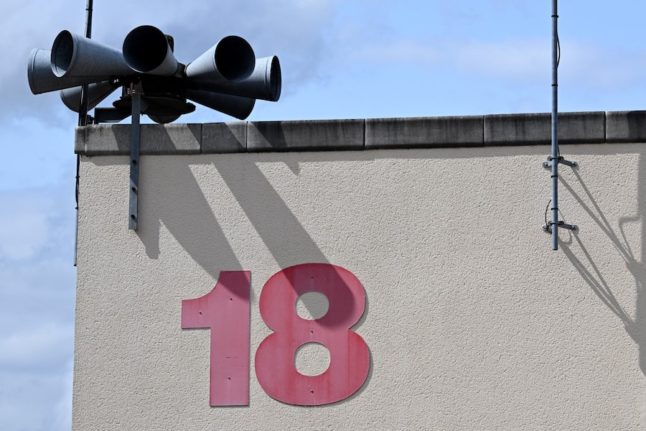In the wake of Storm Ciaran, thousands of property owners in France are preparing insurance claims – with initial estimates of the bill for damage between €370 million and €480 million.
Home insurance is compulsory in France, whether you own the property you live in or you rent – and it must include some level of storm damage cover.
Check also to see if your insurance provides cover in case of a declaration of a catastrophe naturelle.
The garantie tempête (storm guarantee) covers damage caused by violent winds. What constitutes a ‘violent wind’ varies from contract to contract, but there appears to be a widespread consensus of agreement on wind speeds over 100km/h.
In most insurance contracts, this covers damage caused by the storm and within the following 48 hours – so you’re covered if, for example, a tree weakened by the storm comes down within that period and damages your property.
Be aware that, while the storm guarantee automatically covers the main property, it generally only covers any secondary buildings and light constructions – such as a veranda, shed, solar panels, swimming pool or fence – if they are specifically mentioned in the contract.
The same is true of any cars damaged by debris. A basic insurance contract might not include storm damage, so it is always worth checking.
Damage must be reported to your insurer as quickly as possible. The deadline for making declarations is usually five days after any damage is noticed. This is especially important for second home owners, who may not be at the property when the damage occurs.
In some cases – such as in the aftermath of Storm Ciaran – insurers may extend the reporting period. But under normal circumstances, it’s five days after the damage has been discovered.
What happens next
To make a claim, the first thing to do is contact your insurer by phone or email. Your insurer will take you through the next steps, but usually you have to send in a declaration – which should include an estimate of any losses and for any repairs, with evidence where possible, such as photographs and any receipts for purchases.
Your insurer may also request proof of wind intensity, which can be provided for example by a nearby weather station.
The insurance company may appoint an expert to come and assess the damage, so make sure to keep damaged property safe until they arrive, as well as all invoices for any urgent repair work.
What if you’re a tenant?
If you rent your property, you must report any damage inside the accommodation to your insurer and also notify your landlord so that they can file their own claim.
In the case of a co-propriete, you must declare damage inside the accommodation to your insurer, while the trustee sends his own declaration to the collective insurance (which sometimes covers the private areas) .
How long does it take for claims to be settled?
Payment of the compensation provided for by the “storm guarantee” depends your home insurance contract. After the insurer has estimated the amount of damage, compensation is generally paid between 10 and 30 days following receipt of the insured’s agreement.
What if we got flooded?
In the case of flooding, you may have to wait for a natural disaster order to be issued.
Catastrophe naturelle
The ‘state of natural disaster’ is a special procedure that was set up in 1982 so victims of exceptional natural events, such as storms, heavy rain, mudslides and flooding, as well as drought, can be adequately compensated for damage to property.
The government evaluates each area and deems whether it qualifies for the status of catastrophe naturelle (natural disaster).
Essentially once a zone is declared a natural disaster, victims can claim from a pot of funds created by all insurers. If the zone is not declared a disaster, insurance companies are under no obligation to pay out.
Under a “state of natural disaster” residents are covered for all those goods and property that are directly damaged by the phenomenon, in this case storms.
It applies to residential or commercial buildings, furniture, vehicles and work equipment that are already covered by insurance policies.
Homes must be already covered by a multi-risk insurance policy for the status of natural disaster to count.



 Please whitelist us to continue reading.
Please whitelist us to continue reading.
Member comments